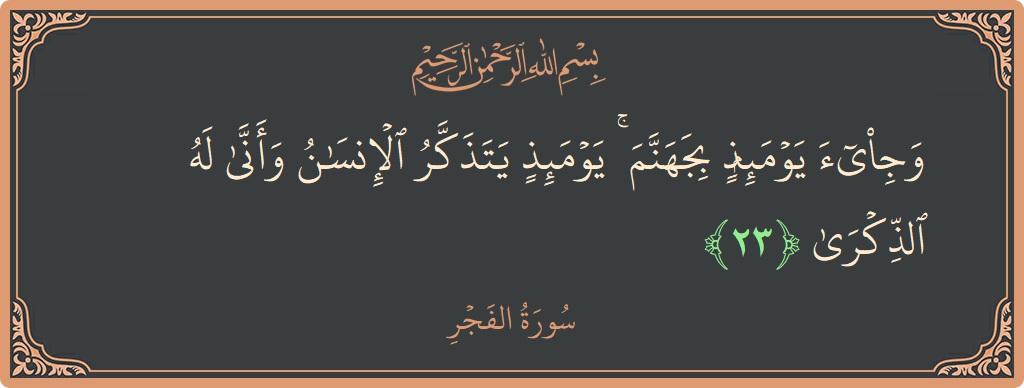Surah Al-Fajr: Verse 23 - وجيء يومئذ بجهنم ۚ يومئذ... - English
Tafsir of Verse 23, Surah Al-Fajr
English Translation
And brought [within view], that Day, is Hell - that Day, man will remember, but what good to him will be the remembrance?English Transliteration
Wajeea yawmaithin bijahannama yawmaithin yatathakkaru alinsanu waanna lahu alththikraTafsir of Verse 23
يَوْمَئِذٍ يَتَذَكَّرُ الْإِنسَانُ وَأَنَّىٰ لَهُ الذِّكْرَىٰ (it will be the day when man will realise the truth, but from where will he take advantage of such realisation? - 89-23). The word tadhakkur in this context means 'to realise'. The unbelievers will realise the errors of their ways in the Hereafter, but it will be too late, because it is this present world where 'Imn and good deeds benefit the people. The Hereafter is the place only for reckoning and retribution. Man will express his remorse thus:
يَقُولُ يَا لَيْتَنِي قَدَّمْتُ لِحَيَاتِي (He will say, "0 Would that I had sent ahead [ some good deeds ] for [ this ] my life!"....89:24). When he faces the torment of disbelief and idolatry on that day of devastation, man will lament that he should have carried out good deeds and refrained from sin in this world to be saved from punishment in the Hereafter. But it will be of no avail. Allah says: 'So, that day, no one can punish like He will punish, nor can anyone shackle like He will shackle....89:26] Having described the torment of the unbelievers, the conclusion of the Surah gives cheerful news to the believers that they will be admitted into Paradise. Thus it says:
